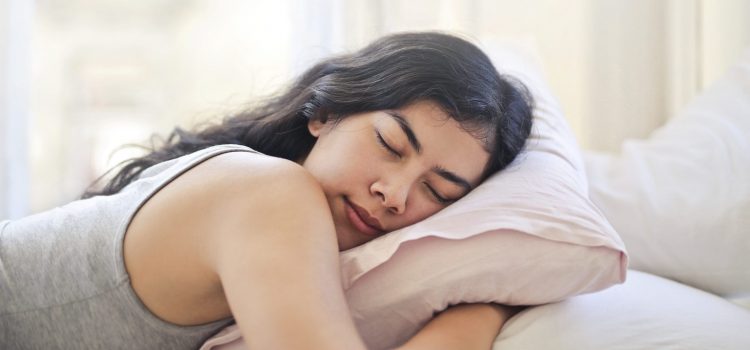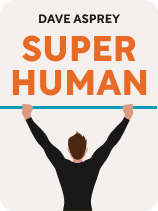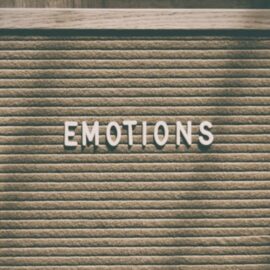

This article is an excerpt from the Shortform book guide to "Super Human" by Dave Asprey. Shortform has the world's best summaries and analyses of books you should be reading.
Like this article? Sign up for a free trial here.
How much does the quality of your sleep matter? What are the pros and cons of using a sleep tracker?
According to Dave Asprey, sleep is one secret to longevity. Sleep deprivation contributes to a damaging cycle that accelerates biological aging. In Super Human, he argues that you can turn this around by getting sufficient quality sleep.
Continue reading to understand the importance of sleep and learn two lifestyle changes that Asprey recommends.
Dave Asprey on Sleep
One cause of mitochondrial inefficiency is suffering from sleep deprivation. According to Dave Asprey, sleep deprivation results from missing out on good-quality sleep that maximizes your time in deep sleep (otherwise known as “delta sleep”). This phase of sleep provides many health benefits: It regulates your hormones, improves your cognitive abilities, reduces your stress levels, and helps your mitochondria eliminate cellular waste.
(Shortform note: Research expands on why deep sleep offers so many health benefits. During this phase of sleep, your neuronal activity decreases, reducing your body’s energy expenditure. This enables your body to divert more resources toward regulating your metabolism and hormones and managing your cellular health. One key benefit of these extra resources is that they enable mitochondria to extract significantly more energy to power cellular function than they can while you’re awake or sleeping lightly.)
Asprey suggests that you can improve the quality of your sleep by making two lifestyle changes: adapting your lighting and tracking your sleeping patterns. Let’s explore each of these methods in detail.
Lifestyle Change #1: Adapt Your Lighting
The first lifestyle change for improving your sleep quality is to adapt your lighting. Asprey explains that you’re more likely to suffer from sleep deprivation if you’re regularly exposed to blue light from LED bulbs and screens. This is because your body’s natural sleep cycle is designed to match the rhythm of the sun: During sunlight hours, your body releases chemicals that make you feel alert and active. When the sun goes down, your body releases chemicals that make you want to sleep and recover. However, blue lighting disrupts this sleep cycle by making your body think that the sun’s out all the time.
(Shortform note: Research supports what Asprey says and reveals that blue light exposure may have twice the impact on children’s sleep cycles than it does on adults. This is because children have larger pupils and are more sensitive to light than adults.)
Asprey suggests that you can minimize this disruption to your sleep cycle by replacing the lighting in your environment with red bulbs, turning off all screens and dimming your lights two hours before you plan to sleep, and wearing glasses that filter out blue light. He also recommends that you spend ten to twenty minutes in the sun each morning (before the sun’s at its most powerful) to balance your exposure to artificial light sources.
(Shortform note: Many health practitioners offer the same advice for reducing blue light exposure. Additionally, some suggest that you can give yourself even more protection by taking carotenoid supplements. Research suggests that these supplements may strengthen the cells around your retina and boost your natural ability to block blue light.)
Lifestyle Change #2: Track Your Sleeping Patterns
In addition to adapting your light sources, Asprey suggests that you can improve the quality of your sleep by tracking your sleeping patterns. Asprey recommends using a sleep tracker that also gathers data from your daytime activities. This type of tracker will reveal how your daytime activities impact the quality of your sleep—providing information that will help you make lifestyle decisions that maximize your time in deep sleep. For example, it might reveal that you benefit from more time in deep sleep when you exercise or eat certain foods during the day.
(Shortform note: Sleep trackers may worsen sleep due to orthosomnia—an obsession with improving sleep tracker data instead of actual sleep quality. Ongoing research suggests that sleep trackers can’t accurately interpret all sleep metrics. However, people with orthosomnia overestimate the accuracy of their sleep data, which leads them to misunderstand how well they’re actually sleeping. They then set misplaced sleep goals that improve sleep tracker data to the detriment of actual sleep quality. For example, in one study, some participants attempted to manipulate their sleep tracker data by staying in bed for longer periods. This preoccupation with inaccurate data often creates anxiety that interferes with good-quality sleep.)

———End of Preview———
Like what you just read? Read the rest of the world's best book summary and analysis of Dave Asprey's "Super Human" at Shortform.
Here's what you'll find in our full Super Human summary:
- How to grow older without the negative side effects
- A look into the advancements of anti-aging science
- Why a healthy future starts with making changes now






